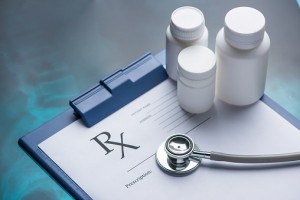Auto Accidents Caused by Prescription Drug Impairment
 Prescription drugs carry a warning about what kinds of activities you should not attempt while you are taking them. While a warning not to operate heavy machinery should include operating a motor vehicle, unfortunately, many people ignore the warnings on medications and continue to drive thinking that the medication will not impair their driving. Many of those people who think that they are impervious to the effect of certain prescription medications are wrong and they gamble with their lives and the lives of the other drivers on the roadway.
Prescription drugs carry a warning about what kinds of activities you should not attempt while you are taking them. While a warning not to operate heavy machinery should include operating a motor vehicle, unfortunately, many people ignore the warnings on medications and continue to drive thinking that the medication will not impair their driving. Many of those people who think that they are impervious to the effect of certain prescription medications are wrong and they gamble with their lives and the lives of the other drivers on the roadway.
The National Highway Transportation Safety Administration (NHTSA) 2013-2014 National Roadside Survey found that more than 22 percent of drivers in the study tested positive for illegal, prescription or over-the-counter drugs. According to a NHTSA release, “Drunk driving declines, while drug use behind the wheel rises.” The NHTSA Roadside Survey shows that nearly one in four drivers tested positive for at least one drug that could affect safety behind the wheel.
What are some of the problems caused by driving under the influence of prescription drugs?
People are discouraged from drinking and driving because of the way alcohol impairs a driver’s judgement and ability to focus on the task of driving. Prescription drugs, depending on what kind of effect they have on the driver, can cause similar types of impairment including:
- Drowsy driving. Allergy medications might seem harmless, but drugs that act as antihistamines can make drivers foggy and sleepy, and the symptoms can occur so quickly the driver is unable to react. If the driver is also sleep deprived and they are driving at night, there are many types of prescription and over-the-counter medications that can cause a driver to fall asleep at the wheel and cause a deadly crash.
- Slower reaction time. Drugs such as pain medications can have a powerful effect on a driver’s reaction time. If you are walking around in a daze from having taken pain meds or if the dose of sleep medication you took the night before has not fully worn off, it can have a significant impact on how quickly you can react to something unexpected, such as a child darting out to chase a ball, a deer dashing across the road in front of your car, or the need to swerve to keep from hitting a car that has slammed in their brakes unexpectedly. You need laser sharp attention and the ability to make split-second reactions when you are driving. There are many medications that could dull those reflexes.
- Poor vision. Some drugs, whether legal or illegal, can hamper your ability to see clearly by causing blurry vision and even diminishing your depth perception. If you are unable to see the road, the environment and the other vehicles on the roads clearly, or estimate how far away they are from your vehicle, it can be difficult to avoid a crash.
In 2011, the NHTSA convened a panel comprised of an international group of behavioral scientists, epidemiologists, pharmacologists, toxicologists, and traffic safety professionals to lend their expertise to the problem of figuring out which medications or classes of medications pose the greatest hazard to driving and those that do not impair driving. The panel uncovered the need for a structured, standardized protocol for assessing the driving impairment risk of drugs that would lead to better classification of drugs in terms of driving impairment risk, however, five years later that protocol does not yet exist.
If you take prescription drugs, do not drive until you know how the drug affects you. Driving when impaired by drugs—prescription or illicit—puts everyone on the road in danger.
Have you been injured in a car crash caused by a driver who was impaired by alcohol, illegal or prescription drugs? If so, you are welcome to speak to an experienced Memphis auto accident attorney at the law offices of Bailey & Greer, PLLC who will answer your questions and offer legal guidance. Please contact us or call us at 901-680-9777 to schedule a consultation at our Memphis or Jackson office to discuss your case.

As founder of Bailey & Greer, R. Sadler Bailey has battled his fair share of insurance giants and wrongdoers and has achieved numerous multimillion-dollar results for the victims of catastrophic injuries and their families. What’s more, he has been involved in more than 40 appellate court decisions affecting Tennessee personal injury law, including many landmark appearances before the Tennessee Supreme Court.
Read more about R. Sadler Bailey
